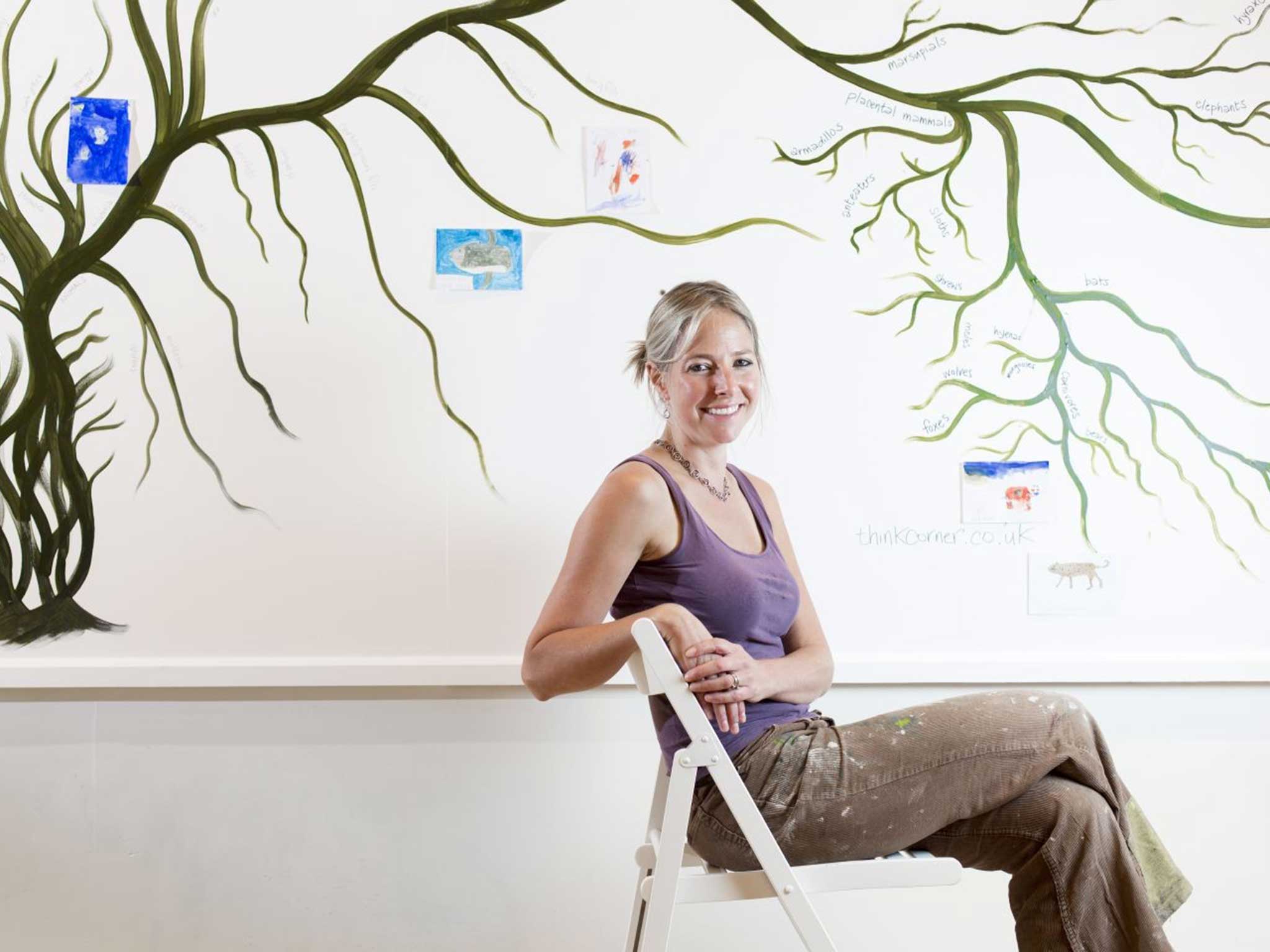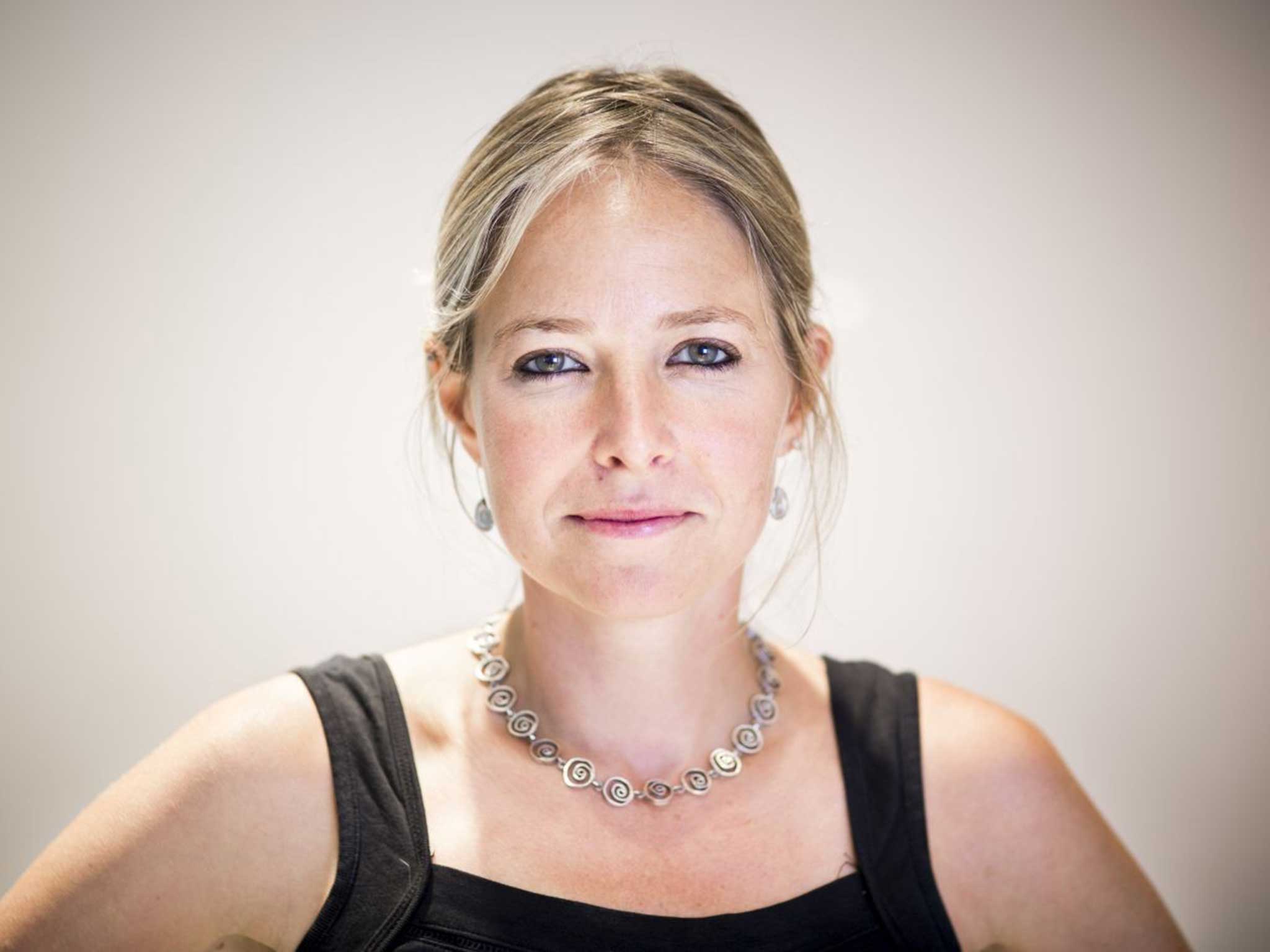Alice Roberts: She's done pretty well, for a boffin without a beard
The anatomist, anthropologist and broadcaster tells Paul Gallagher about her new book on evolution and why her early TV work drew flak from (mostly male) colleagues

Your support helps us to tell the story
From reproductive rights to climate change to Big Tech, The Independent is on the ground when the story is developing. Whether it's investigating the financials of Elon Musk's pro-Trump PAC or producing our latest documentary, 'The A Word', which shines a light on the American women fighting for reproductive rights, we know how important it is to parse out the facts from the messaging.
At such a critical moment in US history, we need reporters on the ground. Your donation allows us to keep sending journalists to speak to both sides of the story.
The Independent is trusted by Americans across the entire political spectrum. And unlike many other quality news outlets, we choose not to lock Americans out of our reporting and analysis with paywalls. We believe quality journalism should be available to everyone, paid for by those who can afford it.
Your support makes all the difference.Alice Roberts has just described how as five-week old embryos we all have gill arches – but thankfully none of us end up as fish. The watery origins of the voice box is just one among many fascinating chapters in The Incredible Unlikeliness of Being: Evolution and The Making of Us, the anatomist and anthropologist’s new book.
One of the largest - Gonads, Genitals and Gestation – describes our “incredible migrating testis” and, in the interests of equality, migrating ovaries too. Roberts writes that as embryos our gonads appear high up on the back wall of our abdomens but “a moment of reflection will confirm that this is not where you keep your gonads now, whatever sex you are”.
“It was my maternity project,” she says of the book, having written it following the birth of her son 16 months ago. “I got very adept at typing and breast feeding at the same time. I’ve wanted to write a book on embryology, that extraordinary journey where you start off as a single cell and end up with a human body, for a general audience for years. I hope that if I can tell its story to people they will be fascinated too. You have a five-week old human embryo with gill arches - what on earth is going on there?”
She has just emerged from Think Corner, a pop-op store in Birmingham’s Pavilions shopping centre showcasing research by scientists at the city’s university where the anatomist and broadcaster has just spent the morning helping children paint species for her ‘Tree of Life’ art/science project - and where she works as Professor of Public Engagement in Science. Her paint-splattered baggy brown corduroys, with a pair of dangling ammonite earrings highlighting her love of archaeology, betray how hands on she has been.

Over the course of an hour Roberts passionately describes her views on the NHS, women in science, sexism, science and religion, evolutionary developmental biology – “evo-devo” to those in the know – working mums and embryology and anatomy, the subject of her latest book.
Having children – her daughter Phoebe was born in 2010 - changed her own perspective on her place in the universe and her field of expertise. “I had this flash of realisation, just an image of my part in this chain of life. I’d made The Incredible Human Journey for the BBC so I’d been thinking about these kinds of things for a long time but giving birth, you feel this almost tangible chain of being going back in time. It’s quite strange because I’m not at all religious but I think there’s a spirituality associated with giving birth.”
Roberts, 41, believes both the Government and employers can do more to promote shared parental leave and said she is lucky her husband, field archaeologist David Stevens who she met at Cardiff University in 1997 when she was a medical student, is a stay at home dad while she juggles ever increasing demands on her time. Their daughter was just two months when filming for Digging for Britain began and Roberts took the family with around the country. “I’d try to meet up at lunch to breast feed - the logistics were quite considerable and I couldn’t have done it without support.”
After leaving medicine in 1998, she taught anatomy at Bristol University where she spent over a decade. Two years ago she was appointed the University of Birmingham’s first Professor of Public Engagement in Science – a natural fit having presented several successful TV shows including Time Team and Coast. However, her broadcasting breakthrough in a field dominated on and off screen by men came at a price.
“Did people’s attitudes towards me change after I appeared on TV? Yeah, definitely. During my career I’ve had some flak – particularly doing television. I noticed it fairly soon after my first appearance [for Time Team Live in 2001]. At Bristol I found it quite difficult to continue trying to balance three things - teaching, research and public engagement, for which television was obviously the most prominent part.
“There were some colleagues who didn’t think it was part of what a researcher or a university academic should be doing and that’s still a battle we are fighting in universities. Some are more enlightened than others and some departments are better than others, realising that an academic can be many things. People think that if you start popularising what you are doing then you’ve raised your head above the parapet,” she laughs. “In some cases we are still fighting this battle.”
It is a battle that Roberts has experienced first-hand and bears the scars. She has no doubt that earlier in her career she was passed over for promotion because of her sex.
“People say ‘it’s not because you’re a woman’, but I certainly felt at various times in my career that if I was a man I would have got on much quicker and I would have been promoted much more quickly. In fact there was one time as a junior academic when I asked why I hadn’t been promoted because I met all the criteria and someone, a man, suggested it was because I lacked ‘gravitas’.
“So I’ve got the experience and the expertise, can demonstrate all that, but I’m lacking this mysterious attribute that you want me to have called ‘gravitas’? I walked away thinking actually what they mean by ‘gravitas’ is that I don’t have a beard or any other male accoutrements.”
Memories of her final years at Bristol are clearly painful - she walked out after more than a decade at the university without a job to go to – yet Roberts sounds like she has faced every challenge with a smile and refuses to dwell on what were undoubtedly darker times.
“I was effectively unemployed after my son was born. I resigned from Bristol because I wasn’t happy with the way my career was going then discovered I was pregnant when I was out of a job, but I was freelancing.…. Yeah, it got very difficult. I resigned for a whole host of reasons. I was extremely lucky though as I was working on a book so I was financially alright thank goodness.”
More TV projects are in the pipeline and public engagement is gradually being enshrined in more academics’ titles, such as physicist Jim Al-Khalili at Surrey and geologist Iain Stewart at Plymouth. “There are many more who do it in an unofficial capacity,” adds Roberts, “like Brian Cox, Andrew Whiten at St Andrews…” I wait for her to mention a woman but she doesn’t, perhaps not surprising given only 17 per cent of professors are female - a statistic Roberts is fiercely committed to addressing.
“To a certain extent we’ve won the battle in some areas of science, which we must not see in one big glob. There are lots of women coming into biological science, medicine, not so many coming into engineering or physics. If you look at science as a lump things look ok. It’s when you break it down that things aren’t quite so rosy.”
Speaking ahead of the British Science Festival, starting in Birmingham on Saturday, Roberts said the fact only 20 per cent of those studying A-level physics are girls and at half of all comprehensives there are no girls studying the subject “presents a real problem” about a lack of role models. “If you go to school where there are no girls studying A-level physics how do you start encouraging them?”
More young children have wandered into the pop-up store. Roberts beams and bounces back inside, ready to inspire the next generation of potential scientists.
‘The Unlikeliness of Being by Alice Roberts is out in hardback on 4 September, £19.99, Heron Books’
Alice Roberts CV
1973 Born in Bristol, England. Her mum was an English and arts teacher and dad an engineer.
1988 Wins the BBC1 Blue Peter Young Artist competition.
1997 Qualified as a physician with Bachelor of Medicine, Bachelor of Surgery having gained an intercalated Bachelor of Science in anatomy at Cardiff University.
1999 Becomes a lecturer in the Anatomy Department, University of Bristol.
2001 First appearance on television in the Time Team Live, Channel 4.
2006 One of the main presenters of the Time Team special episode Big Royal Dig.
2007 Writes and presents a series on anatomy and health - Dr Alice Roberts: Don’t Die Young, on BBC Two.
2008 After seven years completes her PhD in paleopathology, the study of disease in ancient human remains.
2009 Presents The Incredible Human Journey, a five-part BBC Two series on human evolution and early human migration entitle. Resigns from Bristol University.
2010 Presents Wild Swimming, a documentary broadcast on BBC Four, and Digging For Britain, a six-part BBC Two series on archaeology.
2012 Becomes the University of Birmingham’s first Professor of Public Engagement in Science.
2013 Presents the BBC Two series Ice Age Giants.
2014 Writes The Incredible Unlikeliness of Being while on maternity leave following birth of second child.
Juliette Ihler
Join our commenting forum
Join thought-provoking conversations, follow other Independent readers and see their replies
Comments